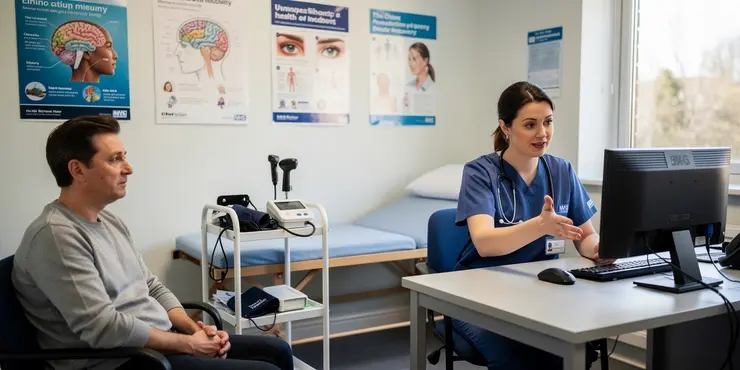
Find Help
More Items From Ergsy search
-
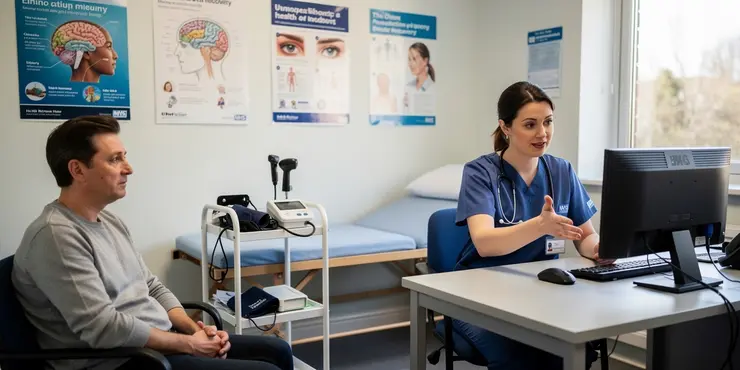
Should people with a concussion avoid screens and technology?
Relevance: 100%
-
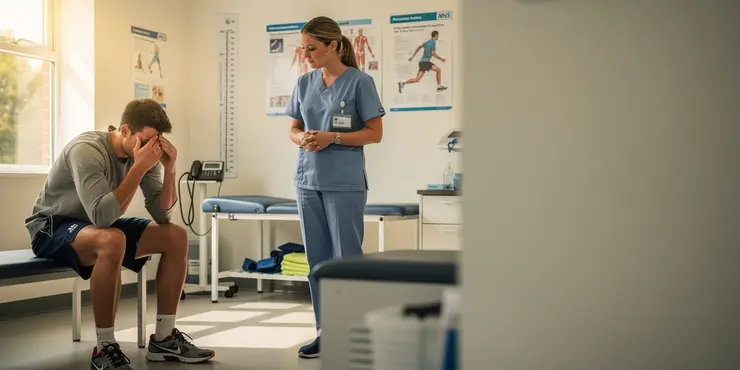
What is Concussion?
Relevance: 60%
-
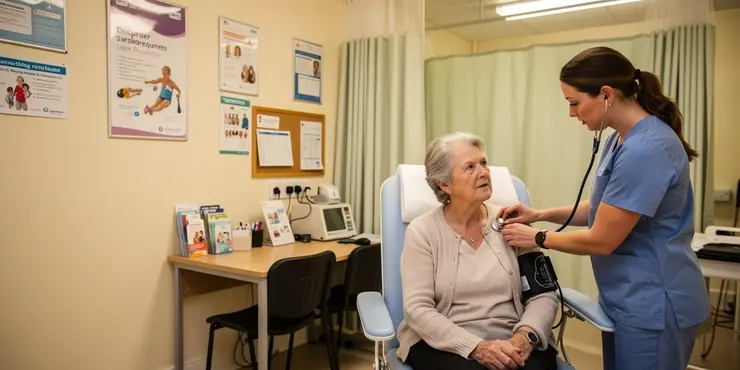
Is it safe to sleep after a concussion?
Relevance: 56%
-
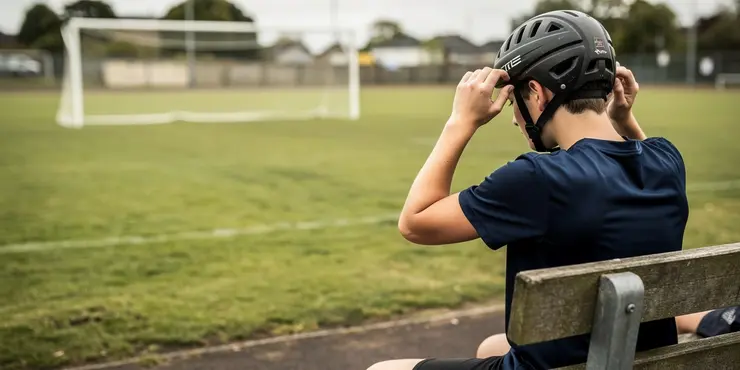
How can concussions be prevented?
Relevance: 55%
-
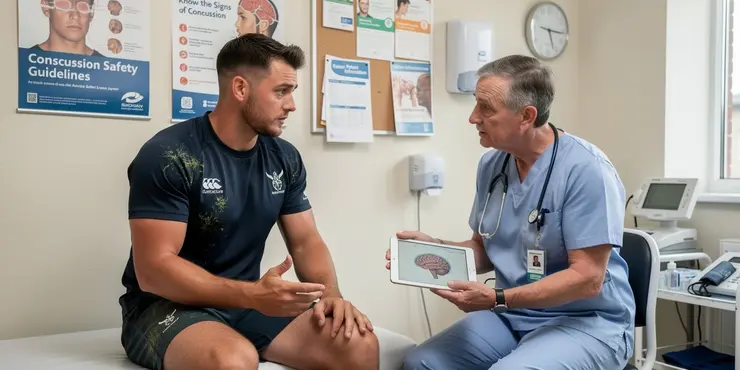
Are helmets required in rugby to prevent concussions?
Relevance: 55%
-
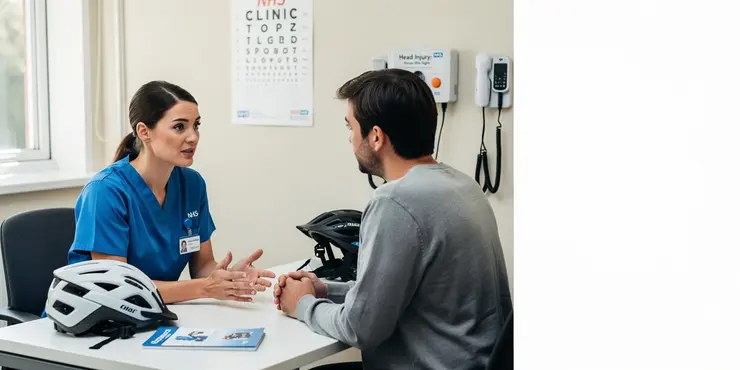
Is there any way to prevent concussions?
Relevance: 55%
-
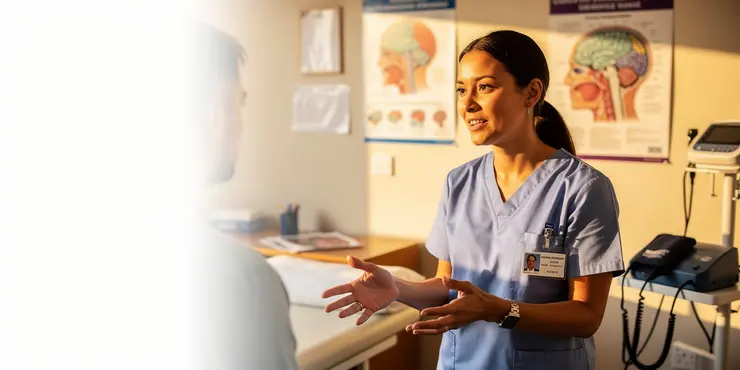
When is it safe to return to normal activities after a concussion?
Relevance: 53%
-
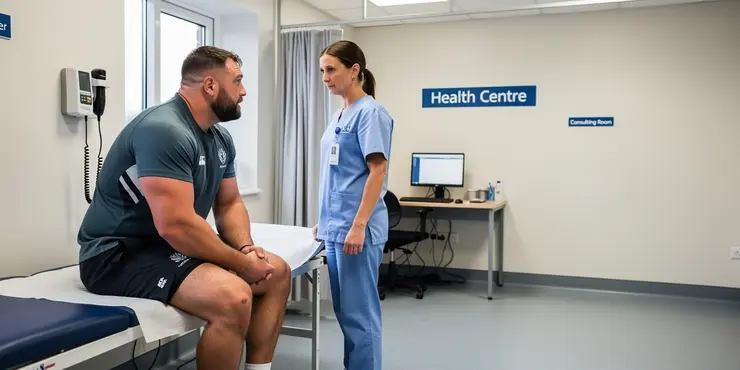
Are Concussions common in Rugby?
Relevance: 52%
-
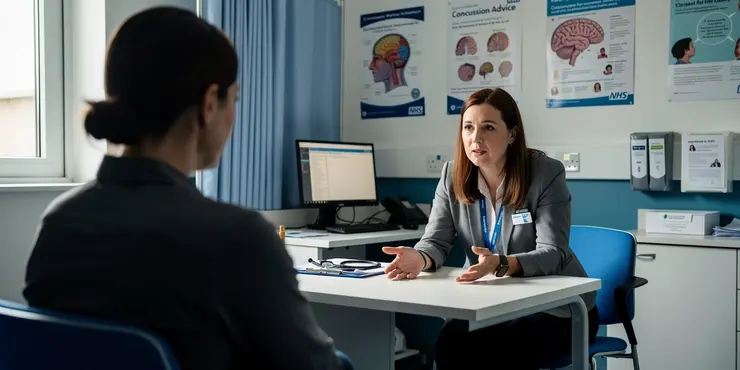
How is a concussion diagnosed?
Relevance: 52%
-
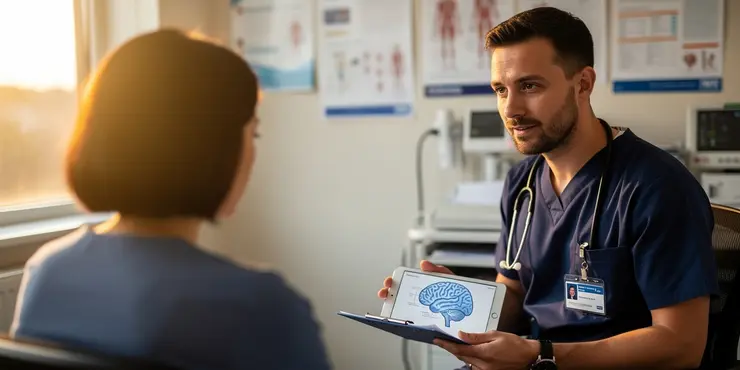
Is headache a symptom of a concussion?
Relevance: 52%
-
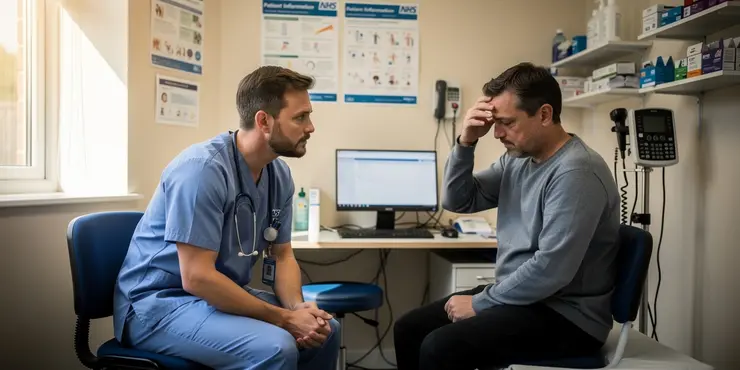
How is a concussion diagnosed?
Relevance: 52%
-
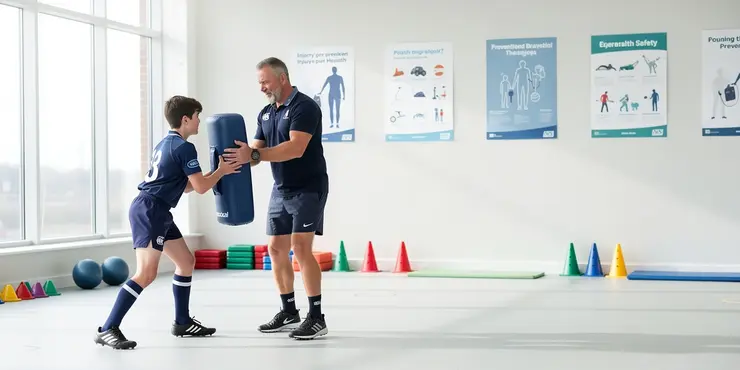
How can concussions be prevented?
Relevance: 50%
-
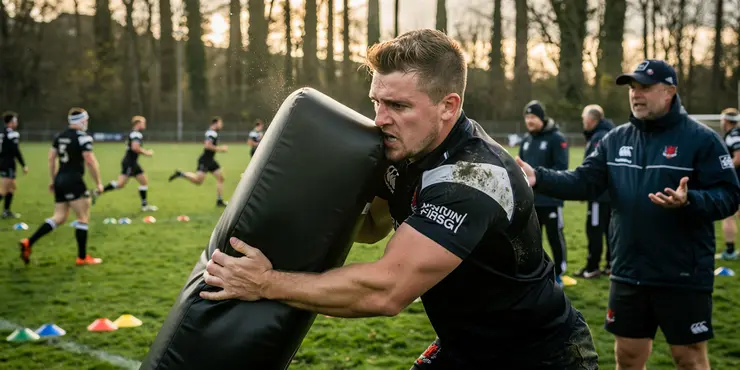
What causes concussions in rugby?
Relevance: 50%
-
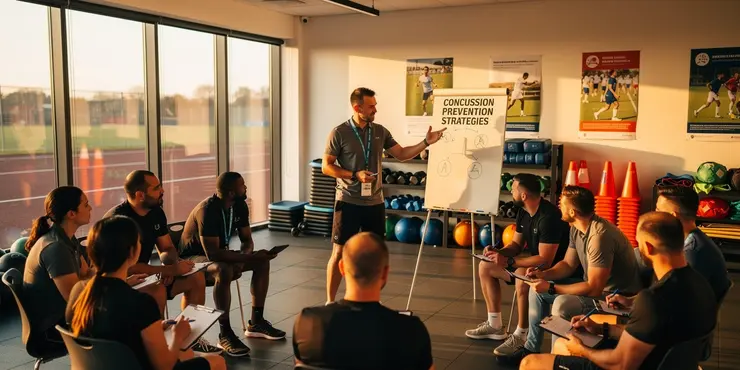
Is training available for coaches to help prevent concussions?
Relevance: 50%
-
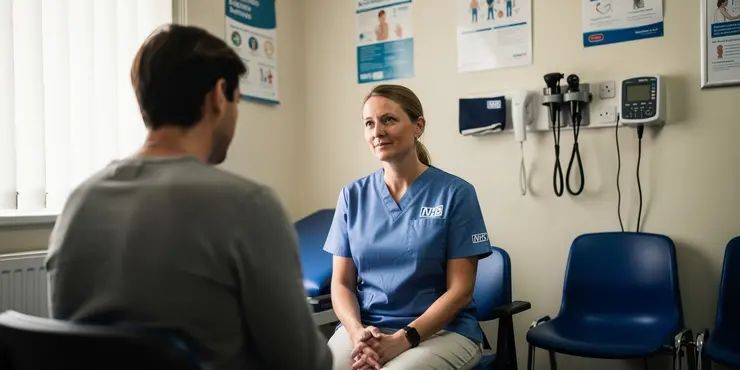
What are common symptoms of a concussion?
Relevance: 50%
-
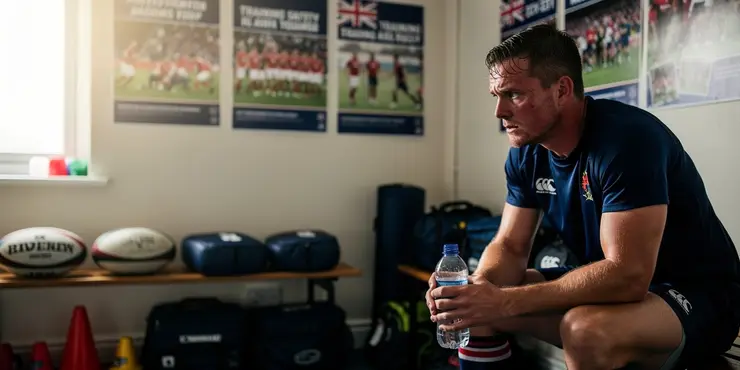
Is there a protocol for managing concussions in rugby?
Relevance: 50%
-
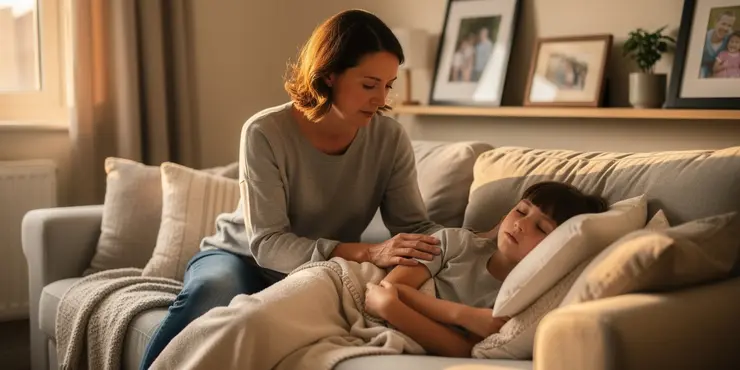
Is it safe to sleep after a concussion?
Relevance: 50%
-
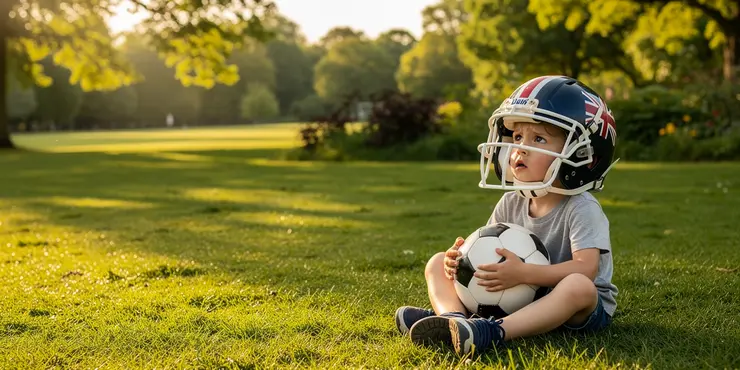
Are children more susceptible to concussions than adults?
Relevance: 49%
-
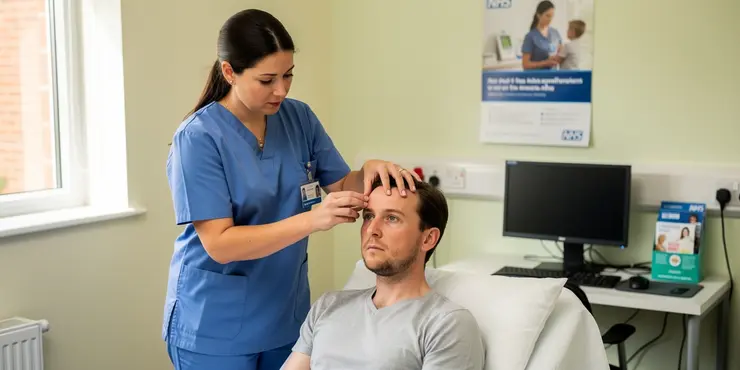
What immediate steps should be taken if someone has a concussion?
Relevance: 49%
-
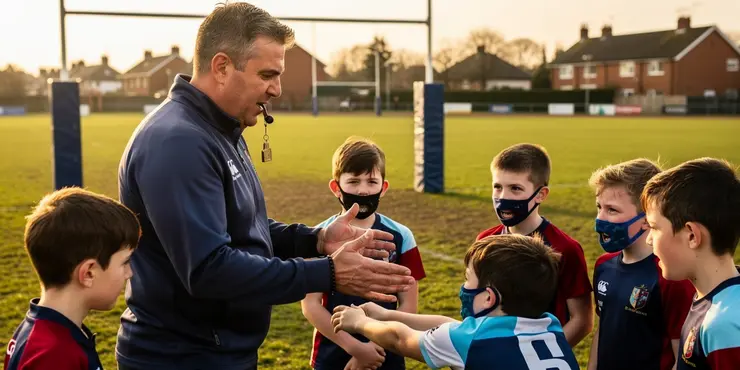
How can concussions be prevented in rugby?
Relevance: 49%
-
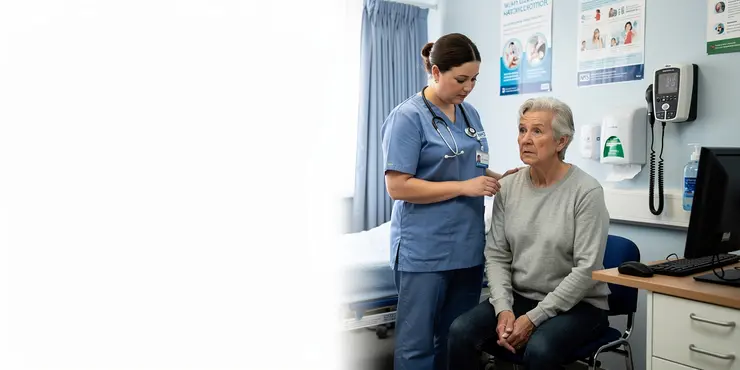
Can a concussion cause memory problems?
Relevance: 48%
-

When is it safe to return to normal activities after a concussion?
Relevance: 48%
-
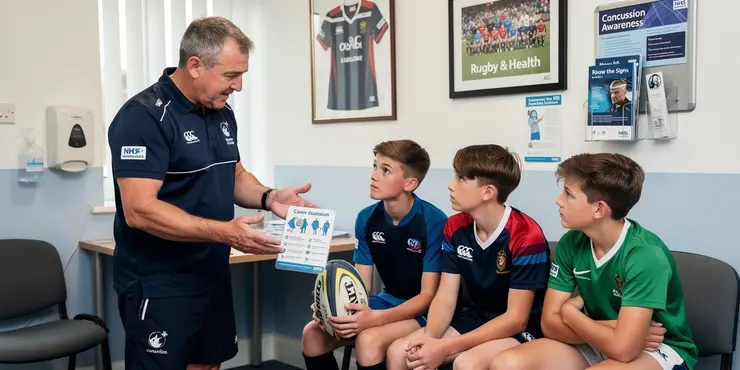
Is there a difference in concussion rates between amateur and professional rugby?
Relevance: 48%
-
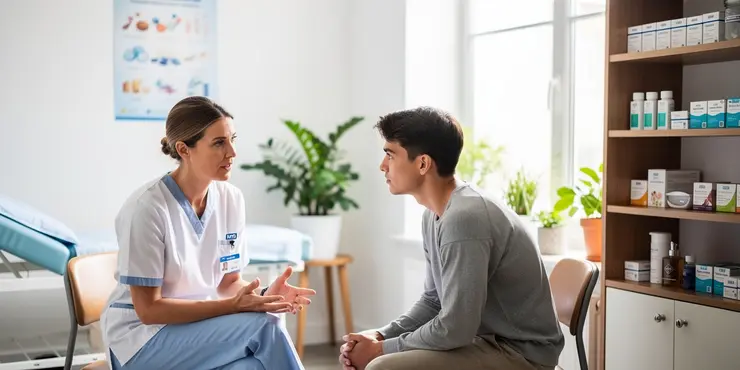
Can concussions lead to mental health issues?
Relevance: 47%
-
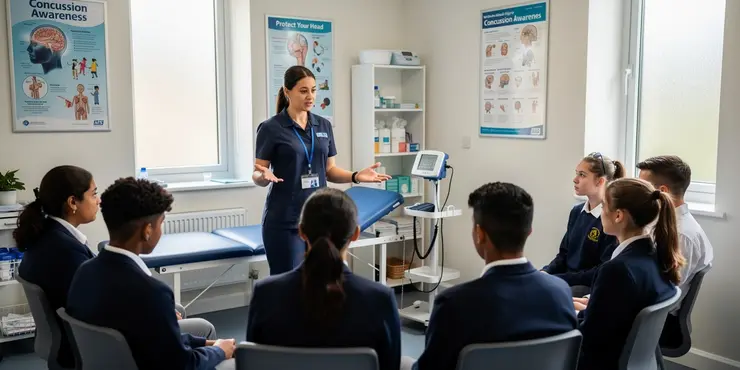
What role do schools play in managing concussions?
Relevance: 47%
-
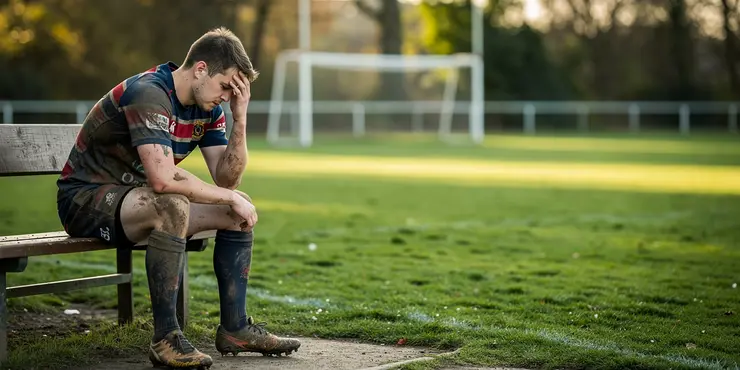
Can playing sports increase the risk of a concussion?
Relevance: 47%
-
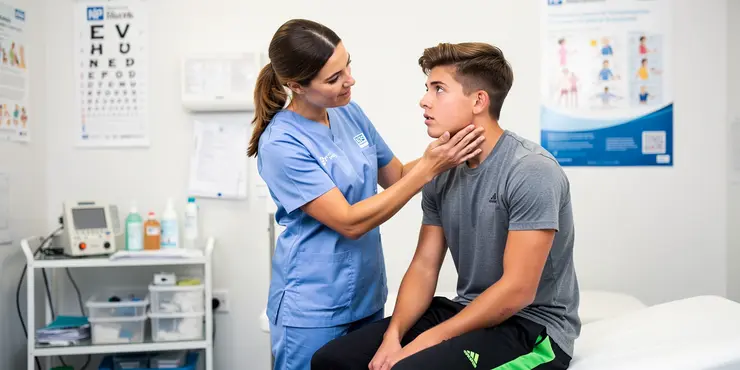
Can concussions occur without a direct blow to the head?
Relevance: 46%
-
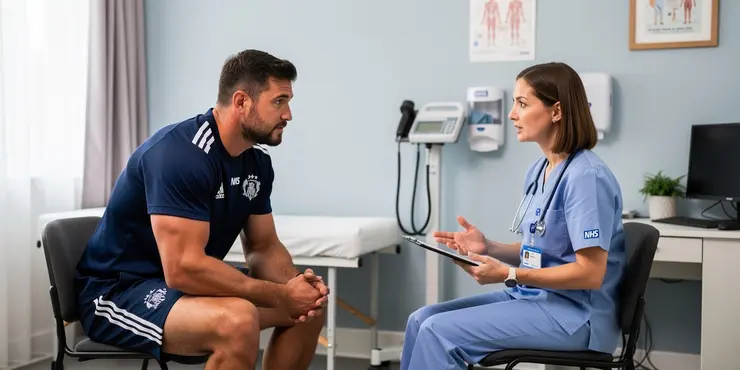
How do concussions impact long-term health in rugby players?
Relevance: 46%
-
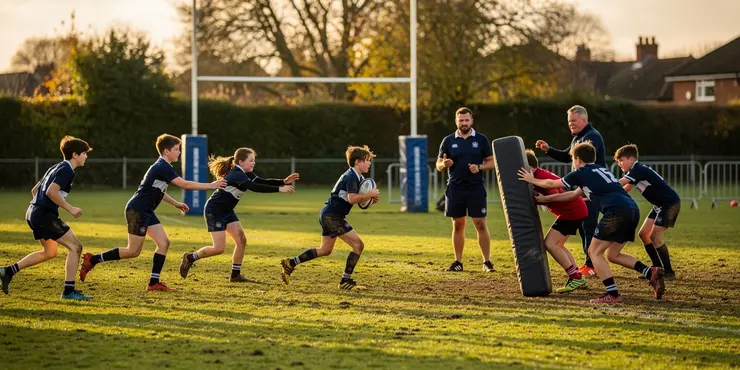
What age groups are most at risk for concussions in rugby?
Relevance: 45%
-
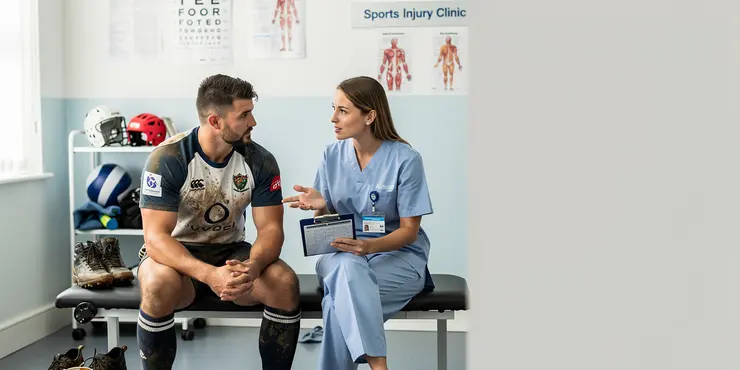
What support is available for rugby players who suffer concussions?
Relevance: 44%
-
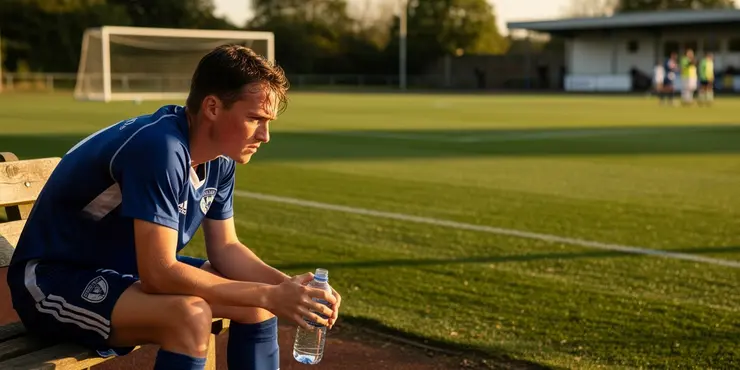
Can players return to play on the same day after a suspected concussion?
Relevance: 44%
-
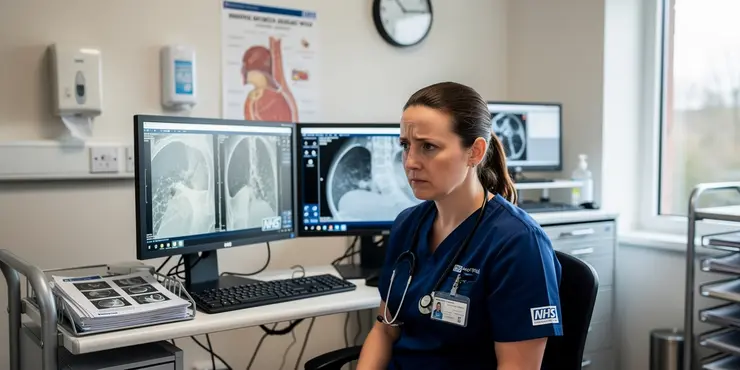
AI Breast Cancer Screening in the UK
Relevance: 39%
-
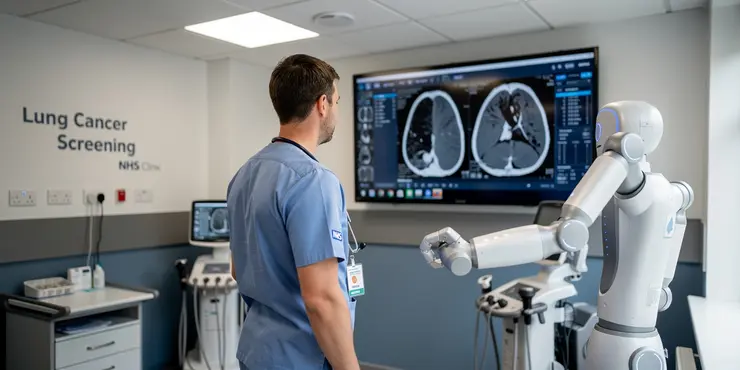
Can robots perform lung cancer screenings?
Relevance: 37%
-
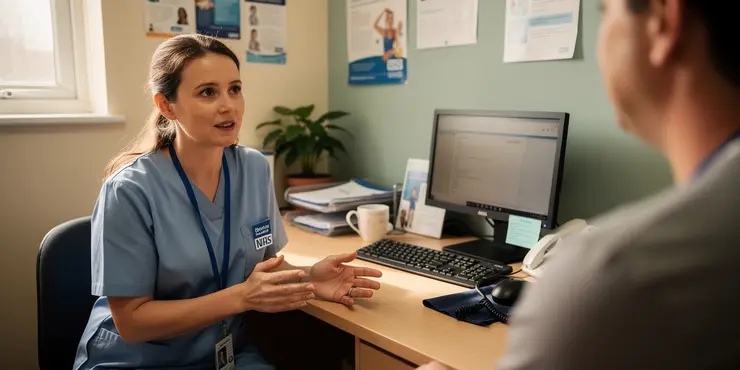
Can technology help in blocking the camera's view?
Relevance: 35%
-
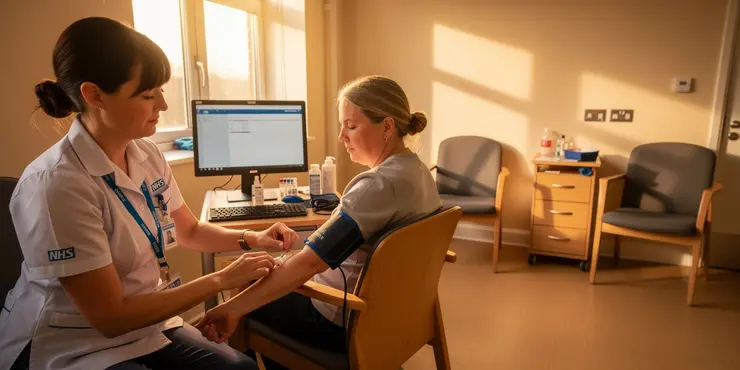
How is blood screened to prevent disease transmission?
Relevance: 35%
-
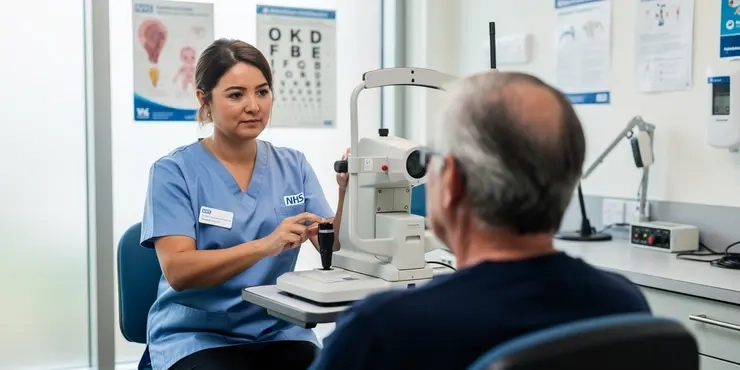
Derbyshire Diabetic Eye Screening - Diabetic Eye Screening
Relevance: 34%
-
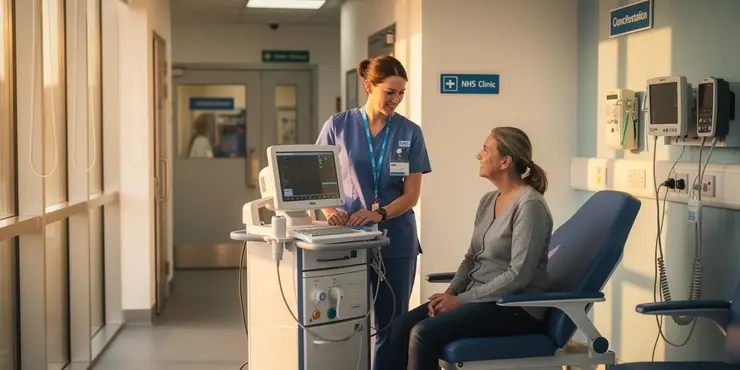
Are EU medical facilities equipped with the latest technology?
Relevance: 34%
-
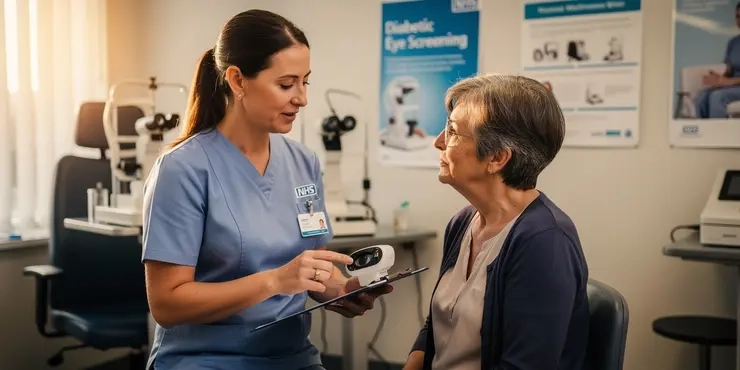
Derbyshire Diabetic Eye Screening - Your Screening Appointment
Relevance: 34%
-
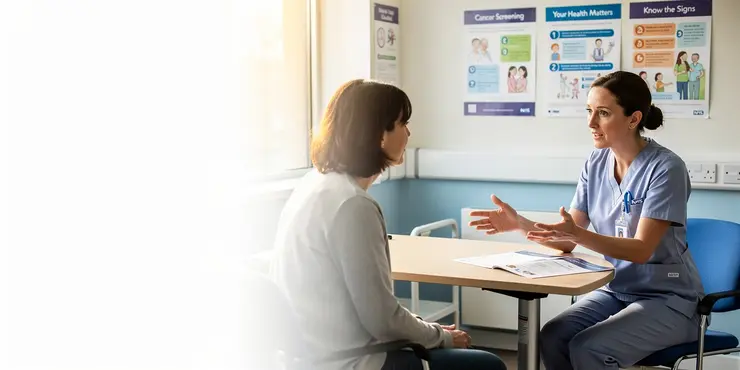
What is cancer screening?
Relevance: 34%
-
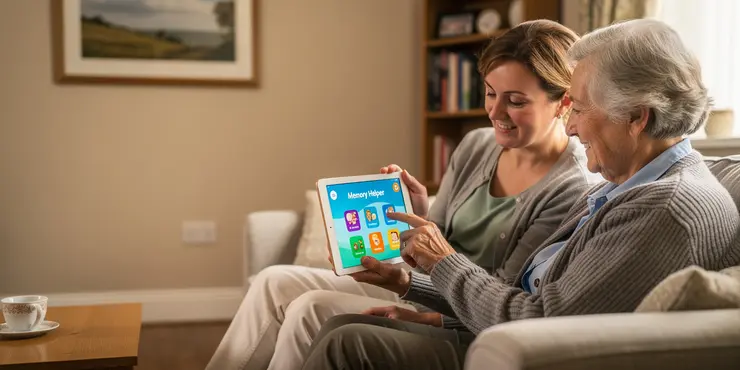
Can technology aid in the care of Alzheimer's patients?
Relevance: 34%
Should People with a Concussion Avoid Screens and Technology?
Understanding Concussions
A concussion is a mild traumatic brain injury that can affect brain function, usually caused by a blow to the head or a violent shaking of the head and body. Symptoms can vary from headaches and dizziness to difficulties in concentration and memory. It’s crucial to understand that while concussions are often mild, they should be taken seriously due to the potential for lasting effects if not properly managed.The Impact of Screens and Technology
In our digital age, screens and technology are ubiquitous, from smartphones and computers to televisions and tablets. However, following a concussion, engaging with digital screens can exacerbate symptoms. The bright lights, fast-moving images, and mental strain of processing digital information can lead to increased headaches, eye strain, and fatigue. Moreover, the cognitive load required to process information on screens can hinder the brain’s healing process, prolonging recovery.Expert Recommendations
Medical professionals recommend that individuals with concussions rest both physically and cognitively to facilitate recovery. This usually involves a temporary break from screen time, as well as limiting activities that require significant concentration. The NHS advises that individuals gradually reintroduce cognitive activities, including screen time, once symptoms have begun to diminish and under a healthcare provider’s guidance. This phased approach helps ensure that symptoms do not worsen during recovery.Guidelines for Safe Usage
When screen time cannot be entirely avoided, adopting certain strategies can help mitigate the risks. Lowering screen brightness, taking regular breaks, and using blue light filters can reduce strain on the eyes and brain. Setting time limits and ensuring breaks are taken helps to avoid prolonged exposure that could worsen symptoms. Additionally, engaging in activities that don’t require screens, such as reading physical books or spending time outdoors, can aid recovery.Conclusion
For those with a concussion, it is crucial to consider the potential impact that screens and technology can have on recovery. By following medical advice to limit exposure and gradually return to normal activities, individuals can support their brain’s healing process effectively. The goal is to strike a balance that aids recovery while minimizing the possibility of prolonged symptoms.Should People with a Concussion Avoid Screens and Technology?
Understanding Concussions
A concussion is a small injury to the brain. It happens when you hit your head or if your head is shaken really hard. This can give you problems like headaches, dizziness, and trouble thinking or remembering. Even though they sound small, concussions are serious and need care so they don't cause more problems later.The Impact of Screens and Technology
We use screens all the time now, like phones, computers, and TVs. But, when you have a concussion, screens can make you feel worse. Bright lights and moving pictures can hurt your head and eyes, making you tired. Also, trying to understand what's on a screen can slow down your brain getting better.Expert Recommendations
Doctors say it's important to rest your mind and body if you have a concussion. This means taking a break from screens and other hard activities. The NHS suggests slowly going back to using screens and thinking hard only when you start feeling better and with a doctor's help. This helps you feel better without making symptoms return.Guidelines for Safe Usage
If you have to use screens, there are ways to make it safer. You can lower the brightness, take lots of breaks, and use filters that block blue light. Set time limits so you don't spend too long on screens. Doing things without screens, like reading a real book or playing outside, can also help you get better.Conclusion
If you have a concussion, screens and technology can affect how you heal. By listening to doctors and taking it easy with screens, you can help your brain recover. The plan is to find a good way to feel better without making your symptoms last longer.Frequently Asked Questions
Should someone with a concussion avoid using screens?
Yes, it's generally recommended to limit screen time after a concussion to allow the brain to rest and recover.
Why is it important to reduce screen time after a concussion?
Screens can strain the eyes and brain, potentially worsening symptoms like headaches and dizziness during the recovery period.
How long should one avoid screens after a concussion?
It varies depending on the severity of the concussion, but it's often recommended to avoid screens for at least the first 24 to 48 hours.
What kind of screens should be avoided with a concussion?
Try to avoid all types of screens, including phones, tablets, computers, and televisions.
Can limited screen use be acceptable after a few days post-concussion?
Yes, limited use may be okay after a few days, but it should be guided by symptom severity and medical advice.
What are alternative activities recommended for someone recovering from a concussion?
Consider activities like light reading, listening to music, or short walks, ensuring they do not exacerbate symptoms.
Does avoiding screens help speed up concussion recovery?
Avoiding screens can help prevent symptom exacerbation and potentially lead to a more comfortable recovery.
Is there a risk of prolonged symptoms if screens are not avoided?
Using screens too soon can increase the risk of prolonged symptoms or worsening of existing symptoms.
Are there any screen-related activities that might be safe after a concussion?
Any activity should be symptom-dependent, but brief, low-stimulus activities may be feasible with medical guidance.
What symptoms indicate that screen usage is too soon after a concussion?
Symptoms like headaches, nausea, dizziness, and increased fatigue may suggest screen usage is premature.
What steps can be taken if screens must be used after a concussion?
Use screens for short periods with regular breaks, keep brightness low, and ensure the room is well-lit to reduce strain.
Can using screens after a concussion affect concentration levels?
Yes, using screens can impair concentration and worsen cognitive fatigue following a concussion.
Should children with concussions follow different guidelines for screen use?
Children should follow similar guidelines but may require additional supervision to ensure compliance with rest periods.
Does the type of concussion affect the advice to avoid screens?
While specific symptoms and recovery times can vary, limiting screen time is a common recommendation regardless of concussion type.
When can someone return to normal screen use after a concussion?
The return to normal screen use should be gradual and decided based on symptom resolution and healthcare provider recommendations.
Can you use screens if you have a concussion?
If you hurt your head and have a concussion, it is good to rest your brain.
Looking at screens, like on a phone or TV, might make your head feel worse.
It is better to take breaks and do quiet things, like reading a book or listening to soft music.
If you are not sure, ask a doctor or an adult for help.
Yes, it is a good idea to spend less time looking at screens after a concussion. This helps your brain rest and get better.
Why should you use screens less after a concussion?
If you hurt your head and get a concussion, it's good to take a break from screens like TVs, computers, and phones. Using screens too much can make it harder for your brain to get better. Resting your mind helps you heal faster and feel better sooner.
Here are some tips to help:
- Read a book or listen to music instead of watching TV.
- Take a nap if you feel tired.
- Ask someone to help you with screens if you have to use them.
Looking at screens can make your eyes and head tired. This can cause headaches and make you feel dizzy, especially if you are trying to get better from an injury.
How long should you stay away from screens after a head bump?
If you hit your head and feel dizzy or see stars, this is called a concussion. After a concussion, it is important to rest your brain. This means no playing on phones, tablets, or watching TV for a while.
Try to avoid screens for at least 1 or 2 days. If you still feel dizzy or have headaches, stay away from screens a little longer until you feel better.
Ask an adult for help. They can give you more ideas to feel better. You can use headphones to listen to calm music or stories to relax. You can also spend time with fun activities that don’t use screens, like drawing or reading a book with big pictures.
Always ask a doctor or a nurse if you don’t feel good after a bump on the head. They will tell you the best way to get better.
How long you need to stay away from screens depends on how bad the concussion is. But usually, it's a good idea not to use screens for at least 1 to 2 days after getting hurt.
What screens should you stay away from if you have a concussion?
If you hurt your head and have a concussion, some screens can make you feel worse.
- Bright Screens: Stay away from very bright screens like phones, tablets, and computers.
- Flashing Lights: Avoid screens with flashing lights or fast-moving pictures.
- Loud Noises: Don't watch videos with loud noises or exciting action.
Ask for help if you need it. You can use special screen settings or apps to make things easier to look at.
Try not to use screens like phones, tablets, computers, and TVs.
Is it okay to use screens a little bit after a few days with a concussion?
Yes, using it a little bit might be okay after a few days. But make sure to pay attention to how you feel and ask a doctor if it's alright.
What can you do if you are getting better after a bump on the head?
Here are some easy activities you can try:
- Listen to relaxing music.
- Draw or color pictures.
- Do puzzles with big pieces.
- Read simple books with big print.
Remember to rest often. You can also try using soft lights or wearing sunglasses if bright light bothers you.
Try doing things that help you feel better, like reading easy books, listening to music, or going for short walks. Make sure these activities don't make you feel worse.
Can staying away from screens help you get better from a concussion faster?
Staying away from screens can help you feel better and make it easier for you to get well.
Can using screens for a long time make you feel unwell?
Spending too much time looking at screens can sometimes make people feel bad for longer. This can mean feeling tired, getting headaches, or having sore eyes.
To help, try taking breaks from screens, and use apps or tools that remind you to rest your eyes. You can set a timer to take a break every 20 minutes and look at something far away for a bit.
Remember to tell a grown-up if you feel bad so they can help you.
Using screens too soon can make symptoms last longer or get worse.
Can you do any screen activities after a head bump?
Do things based on how you feel. You might be able to do short and quiet things if your doctor says it's okay.
What signs show it's too early to use screens after a concussion?
A concussion is a bang to the head that can make you feel unwell. After a concussion, some people might feel dizzy or tired. This means it's too soon to look at screens like phones, tablets, or TV.
Here’s how to know if it’s too early to use screens:
- You feel dizzy when looking at a screen.
- Your head hurts when using a screen.
- Your eyes start to hurt or feel tired fast.
- You feel very tired quickly.
- You can’t think clearly or focus well.
If you notice these signs, it’s best to take a break from screens and rest until you feel better.
Helpful tips:
- Rest in a quiet, dark room.
- Ask someone to help you with tasks that require looking at screens.
- Limit screen time and take frequent breaks.
Signs like headaches, feeling sick, feeling dizzy, and being extra tired might mean you are spending too much time looking at screens.
What can you do if you need to use screens after a concussion?
Look at screens for a short time and take breaks often. Keep the screen brightness low and make sure the room is bright to help your eyes.
Can looking at screens after a bump to the head make it hard to focus?
Yes, looking at screens can make it hard to focus and can make you feel more tired after a head injury.
Here are some things that can help:
- Take breaks from screens.
- Rest your eyes often.
- Use settings to make screens easier to see.
Can kids with a head bump use screens in a different way?
If a child hits their head, they might have a concussion. This is when the brain gets shaken up.
Kids with concussions need to rest their brains. This means they might need to use screens like tablets, phones, or TVs in a different way.
Here are some tips to help:
- Let them take breaks often when using screens.
- Make sure the room is not too bright.
- Keep the sound low.
- Ask a doctor for more advice.
Using screens the right way can help kids feel better faster.
Children should follow the same rules. But they might need extra help from an adult to make sure they take breaks.
Does the type of concussion change the advice to stay away from screens?
When you hurt your head, it's called a concussion. Sometimes doctors say not to look at screens like TVs, phones, or tablets. This is to help your head feel better.
Different types of concussions mean different advice. Always ask a doctor what is best for you.
Here are some things that can help:
- Rest in a quiet, dark room.
- Avoid bright lights and loud noises.
- Ask someone to read to you if it helps.
- If using a screen, adjust the brightness and take breaks often.
After you hurt your head, you might feel different things. Getting better can take different times for everyone. One thing that helps most people is to spend less time looking at screens, like phones, tablets, and TVs.
When can you use screens again after a concussion?
If you hurt your head and get a concussion, you might need to rest your eyes. This means taking a break from phones, computers, and TV.
Ask your doctor when it’s safe to go back to using screens. It’s different for everyone.
You can try these things to help:
- Start with short times on screens.
- Take breaks often.
- Use apps that remind you to rest your eyes.
- Wear sunglasses if the light is too bright.
Always listen to your body and stop if you feel dizzy or have a headache. Talk to your doctor if you have questions.
Go back to using screens slowly. First, your symptoms should be better. Your doctor can help you know when it's okay.
Useful Links
This website offers general information and is not a substitute for professional advice.
Always seek guidance from qualified professionals.
If you have any medical concerns or need urgent help, contact a healthcare professional or emergency services immediately.
Some of this content was generated with AI assistance. We’ve done our best to keep it accurate, helpful, and human-friendly.
- Ergsy carfully checks the information in the videos we provide here.
- Videos shown by Youtube after a video has completed, have NOT been reviewed by ERGSY.
- To view, click the arrow in centre of video.
- Most of the videos you find here will have subtitles and/or closed captions available.
- You may need to turn these on, and choose your preferred language.
- Go to the video you'd like to watch.
- If closed captions (CC) are available, settings will be visible on the bottom right of the video player.
- To turn on Captions, click settings .
- To turn off Captions, click settings again.
More Items From Ergsy search
-

Should people with a concussion avoid screens and technology?
Relevance: 100%
-

What is Concussion?
Relevance: 60%
-

Is it safe to sleep after a concussion?
Relevance: 56%
-

How can concussions be prevented?
Relevance: 55%
-

Are helmets required in rugby to prevent concussions?
Relevance: 55%
-

Is there any way to prevent concussions?
Relevance: 55%
-

When is it safe to return to normal activities after a concussion?
Relevance: 53%
-

Are Concussions common in Rugby?
Relevance: 52%
-

How is a concussion diagnosed?
Relevance: 52%
-

Is headache a symptom of a concussion?
Relevance: 52%
-

How is a concussion diagnosed?
Relevance: 52%
-

How can concussions be prevented?
Relevance: 50%
-

What causes concussions in rugby?
Relevance: 50%
-

Is training available for coaches to help prevent concussions?
Relevance: 50%
-

What are common symptoms of a concussion?
Relevance: 50%
-

Is there a protocol for managing concussions in rugby?
Relevance: 50%
-

Is it safe to sleep after a concussion?
Relevance: 50%
-

Are children more susceptible to concussions than adults?
Relevance: 49%
-

What immediate steps should be taken if someone has a concussion?
Relevance: 49%
-

How can concussions be prevented in rugby?
Relevance: 49%
-

Can a concussion cause memory problems?
Relevance: 48%
-

When is it safe to return to normal activities after a concussion?
Relevance: 48%
-

Is there a difference in concussion rates between amateur and professional rugby?
Relevance: 48%
-

Can concussions lead to mental health issues?
Relevance: 47%
-

What role do schools play in managing concussions?
Relevance: 47%
-

Can playing sports increase the risk of a concussion?
Relevance: 47%
-

Can concussions occur without a direct blow to the head?
Relevance: 46%
-

How do concussions impact long-term health in rugby players?
Relevance: 46%
-

What age groups are most at risk for concussions in rugby?
Relevance: 45%
-

What support is available for rugby players who suffer concussions?
Relevance: 44%
-

Can players return to play on the same day after a suspected concussion?
Relevance: 44%
-

AI Breast Cancer Screening in the UK
Relevance: 39%
-

Can robots perform lung cancer screenings?
Relevance: 37%
-

Can technology help in blocking the camera's view?
Relevance: 35%
-

How is blood screened to prevent disease transmission?
Relevance: 35%
-

Derbyshire Diabetic Eye Screening - Diabetic Eye Screening
Relevance: 34%
-

Are EU medical facilities equipped with the latest technology?
Relevance: 34%
-

Derbyshire Diabetic Eye Screening - Your Screening Appointment
Relevance: 34%
-

What is cancer screening?
Relevance: 34%
-

Can technology aid in the care of Alzheimer's patients?
Relevance: 34%


